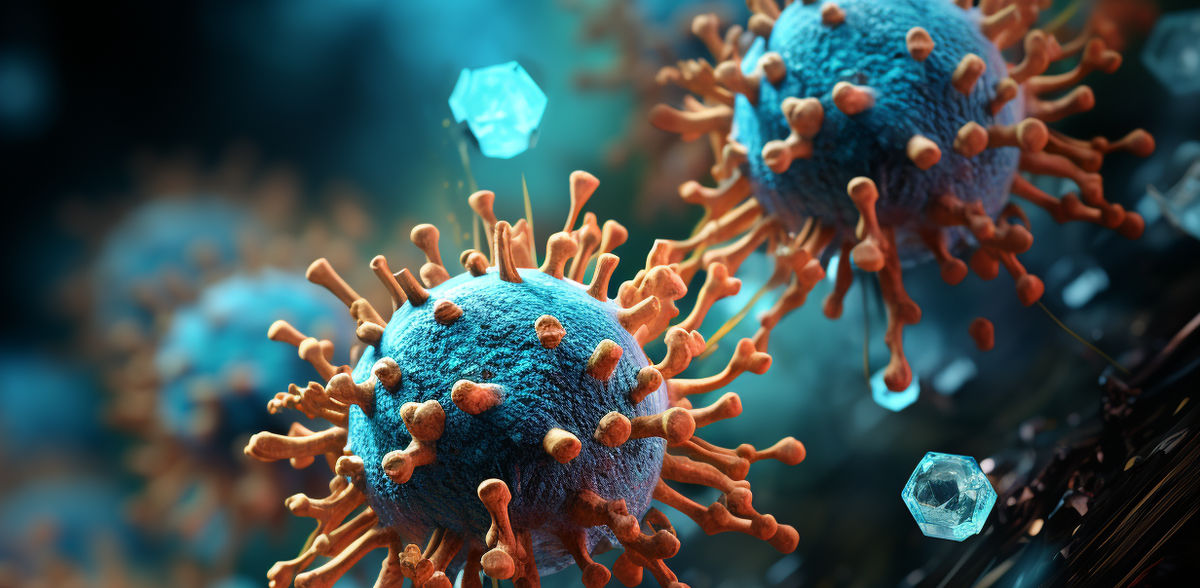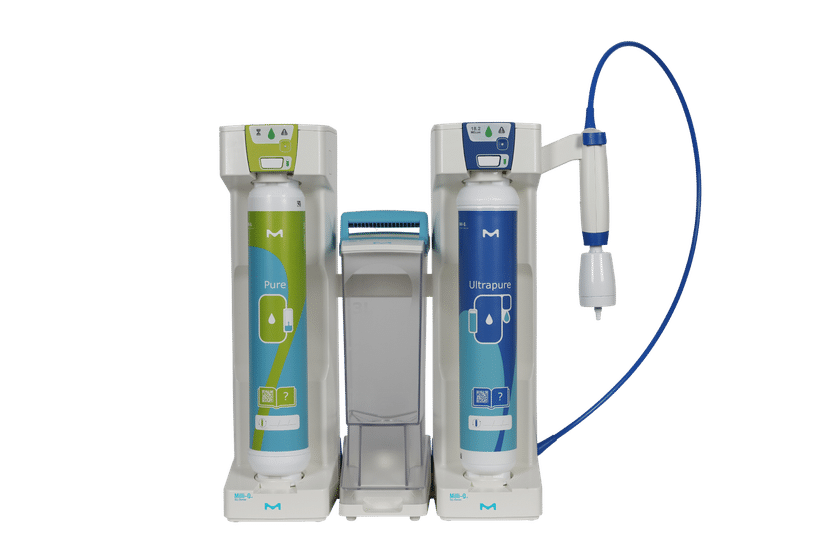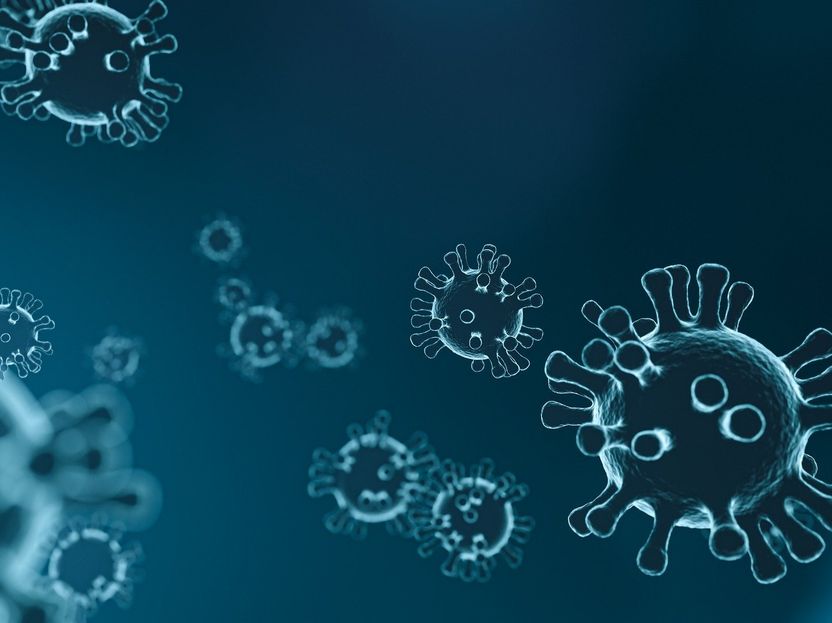New SARS-CoV-2 variant Eris on the rise
SARS-CoV-2 lineage EG.5.1 has an advantage at evading neutralizing antibodies
As a result of vaccination or infection, our immune system produces antibodies that attach to the spike protein of SARS-CoV-2, preventing the virus from entering and replicating within cells. In response, the virus develops mutations that cause antibodies to bind less effectively to the spike protein. Since May 2023, the EG.5 lineage of SARS-CoV-2, known as Eris, has been spreading globally and was classified as a "Variant of Interest" by the World Health Organization (WHO) in early August. However, the cause of the increasing spread of Eris has been unclear. Scientists from the German Primate Center – Leibniz Institute for Primate Research in Göttingen have now examined the characteristics of the Eris sublineage EG.5.1. The researchers found that EG.5.1 is not more infectious than its predecessors, meaning it cannot infect host cells more effectively. However, EG.5.1 can escape neutralizing antibodies better than other currently circulating SARS-CoV-2 lineages, giving it an advantage in infecting individuals whose immune systems have produced neutralizing antibodies after vaccination or infection (The Lancet Infectious Diseases).
After exhausting years of the pandemic with multiple waves of infections caused by ever-changing virus variants and corresponding hospitalization rates, the situation has significantly improved by now. Large waves of infections outside the cold and wet seasons are not occurring. This success is largely attributed to the rapid development of vaccines. Many people have been immunized against SARS-CoV-2. Booster vaccinations with adapted vaccines, known as booster shots, as well as infections in vaccinated individuals with currently circulating virus variants, have further trained our immune system so that it can also counter newly emerging virus variants.
Virus variants: Spike protein mutations can 'shake off' neutralizing antibodies and increase infectivity
A part of our immune protection relies on neutralizing antibodies that are produced by the cells of our immune system after vaccination or infection. Neutralizing antibodies attach to the spike protein of SARS-CoV-2, preventing the virus from entering into our cells. This mechanism is also referred to as neutralization. However, even with neutralizing antibodies, a 100 percent protection against a SARS-CoV-2 infection is not guaranteed because SARS-CoV-2 can still change. This leads to the emergence of mutated virus variants that can gain the ability to partially evade neutralizing antibodies. This process is also known as antibody escape and is based on mutations in the spike protein that make it less optimal for neutralizing antibodies to bind.
"Furthermore, mutations can enhance the transmissibility of SARS-CoV-2 variants by, for example, improving the binding of the spike protein to the cellular receptor ACE2," says Markus Hoffmann, the leading scientist behind the study.
Mutations in the spike protein of the Eris sublineage EG.5.1 increase the ability to evade neutralizing antibodies
Since May 2023, the SARS-CoV-2 lineage EG.5, including its descendant EG.5.1, has been on the rise in many countries. The lineage, classified as a "Variant of Interest" by the World Health Organization (WHO), is also referred to as Eris, named after the Greek goddess of chaos and discord. While this name may sound dangerous, there is currently no evidence to suggest that infections with EG.5 and EG.5.1 are leading to more severe illnesses. However, it is still unclear what is causing the increasing spread of EG.5 and EG.5.1. A team of scientists from the German Primate Center – Leibniz Institute for Primate Research in Göttingen, the Hannover Medical School, and Friedrich-Alexander University Erlangen-Nuremberg has investigated the Eris sublineage EG.5.1. "We have found evidence that an increased ability to escape from antibodies is the likely cause for the enhanced spread of Eris," says Markus Hoffmann.
"We tested how effectively the Eris sublineage EG.5.1 can enter host cells and how efficiently it is neutralized by antibodies in the blood of vaccinated individuals without a SARS-CoV-2 infection and those with a SARS-CoV-2 infection. During this process, we found that, in comparison to other currently circulating SARS-CoV-2 lineages, EG.5.1 does not possess an advantage in infecting host cells. However, further investigations revealed that EG.5.1 is less effectively neutralized by antibodies present in the blood of vaccinated individuals or vaccinated and infected individuals," explains Lu Zhang, the lead author of the study. The experiments were conducted using replication-incompetent viruses produced in the laboratory, known as pseudoviruses, for safety reasons.
"In summary, our results suggest that the spread of EG.5 and its sublineages primarily relies on antibody escape rather than an enhanced ability to infect host cells. However, the increase in the ability to escape antibodies is rather moderate and by no means sufficient to completely undermine our immunity that has been established through vaccination or prior infection," comments Markus Hoffmann on the outcome of the study.
Adapted vaccines based on the SARS-CoV-2 XBB.1.5 lineage should also be effective against EG.5 and its sublineages
In the autumn of this year, newly adapted SARS-CoV-2/COVID-19 vaccines based on the widespread XBB.1.5 lineage of SARS-CoV-2 will be deployed. Now the question arises: will these vaccines also be effective against EG.5 and its sublineages? "Since Eris is a descendant of the closely related XBB.1.9 lineage, and the various XBB sublineages exhibit only minor differences among themselves, it can be assumed that the newly adapted vaccines will also be effective against EG.5 and its sublineages. Primary and booster vaccination, especially for high-risk groups and their close contacts, are therefore advisable," concludes Stefan Pöhlmann, Head of the Infection Biology Unit at the German Primate Center – Leibniz Institute for Primate Research.
Original publication
Other news from the department science
Most read news
More news from our other portals
See the theme worlds for related content
Topic world Antibodies
Antibodies are specialized molecules of our immune system that can specifically recognize and neutralize pathogens or foreign substances. Antibody research in biotech and pharma has recognized this natural defense potential and is working intensively to make it therapeutically useful. From monoclonal antibodies used against cancer or autoimmune diseases to antibody-drug conjugates that specifically transport drugs to disease cells - the possibilities are enormous

Topic world Antibodies
Antibodies are specialized molecules of our immune system that can specifically recognize and neutralize pathogens or foreign substances. Antibody research in biotech and pharma has recognized this natural defense potential and is working intensively to make it therapeutically useful. From monoclonal antibodies used against cancer or autoimmune diseases to antibody-drug conjugates that specifically transport drugs to disease cells - the possibilities are enormous
























































